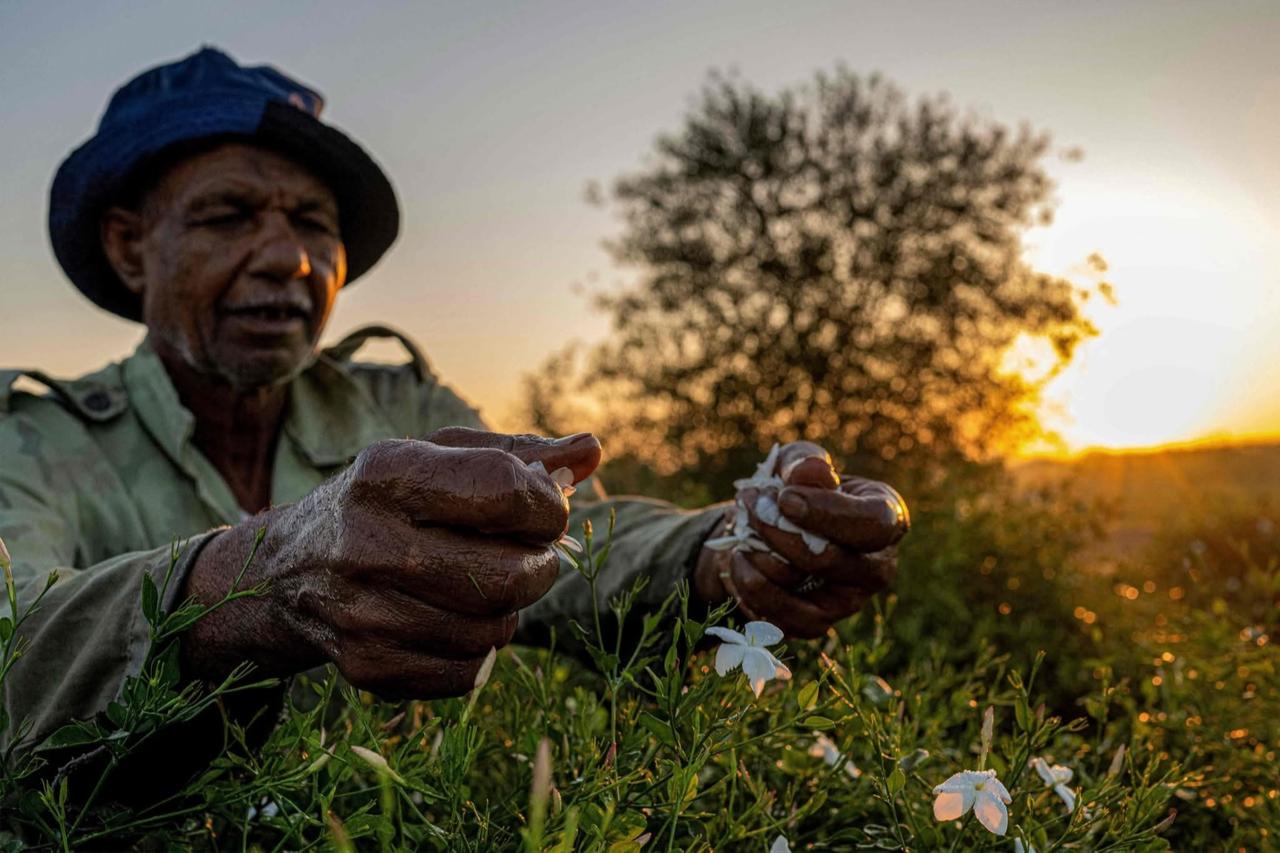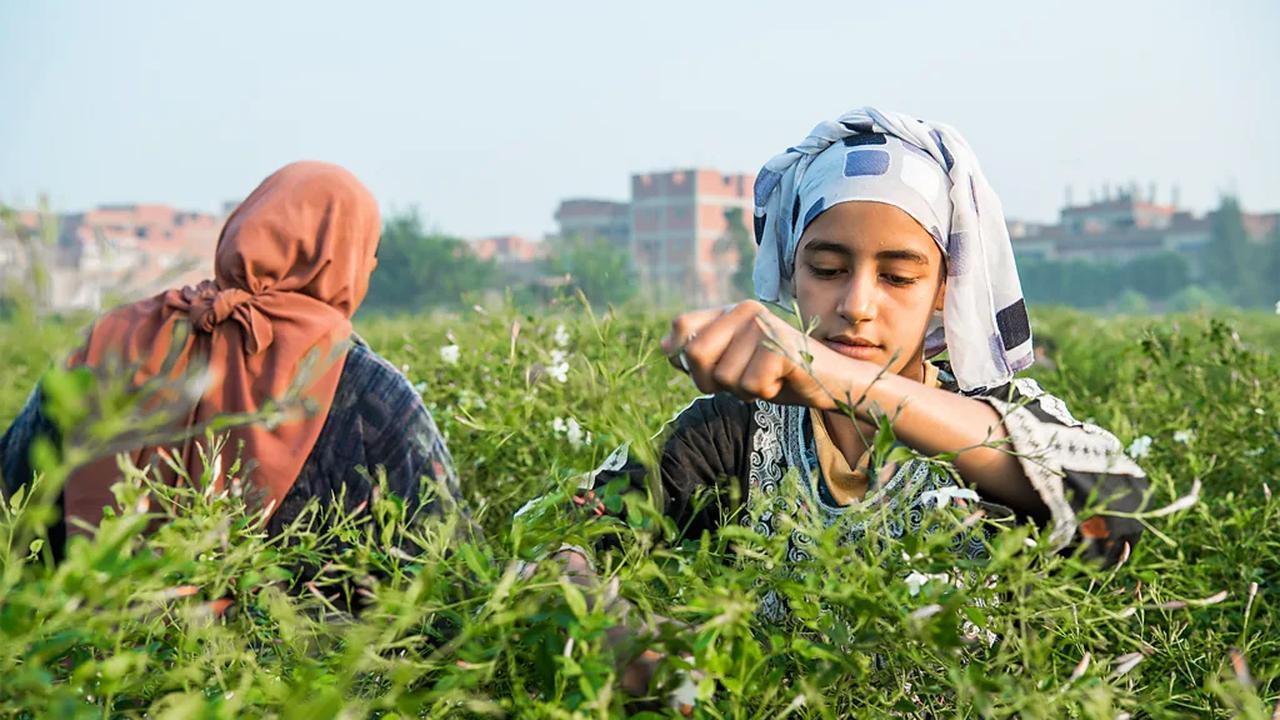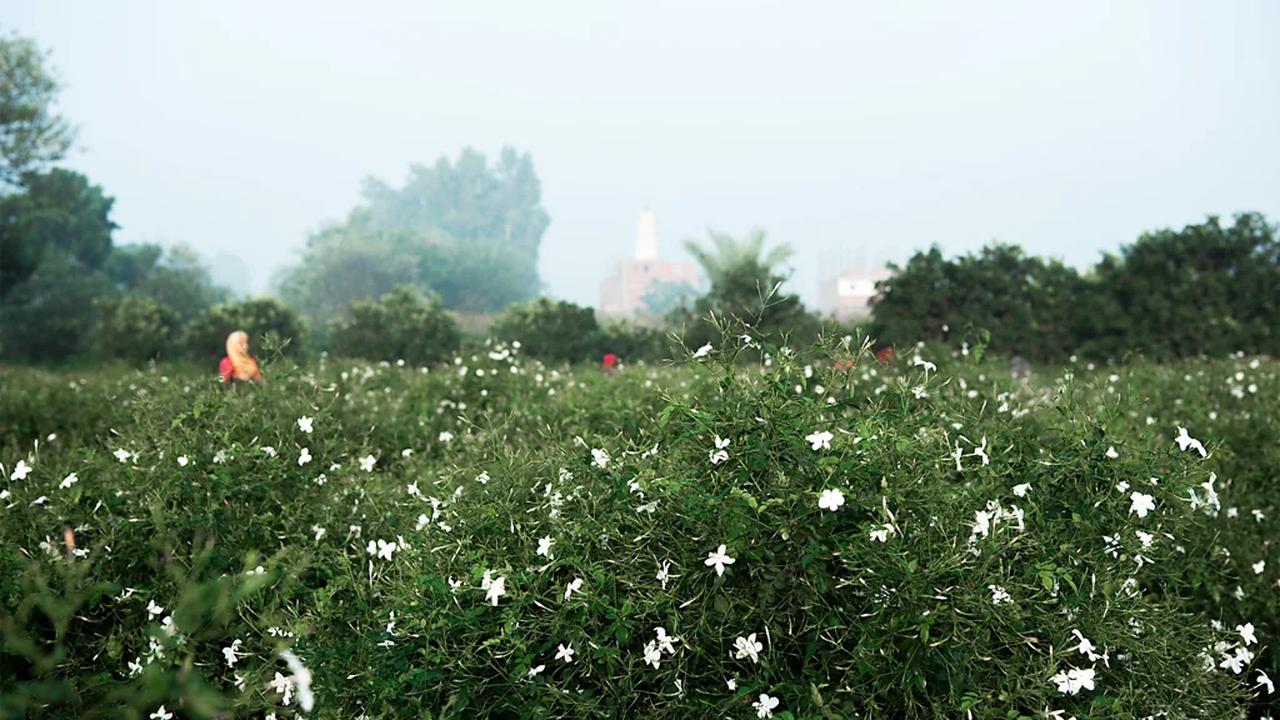
Few people realize that Shubra Beloula, a small village nestled in the heart of Egypt’s Nile Delta, plays a crucial role in the global fragrance industry by producing more than half of the world’s jasmine, a key ingredient used in many of the most iconic perfumes worldwide.
Egypt, along with India, dominates jasmine absolute production, with both countries accounting for around 95% of the global supply, based on 2015 figures from the International Federation of Essential Oils and Aroma Trades (IFEAT).
This fragrant flower, cultivated by generations of Egyptian farmers, is the hidden foundation of some of the world’s most luxurious perfumes.
Located in the Nile Delta, around 97 kilometers (60.2 miles) from Cairo, the village spans roughly 257 acres—most of which are dedicated to jasmine cultivation, scientifically called Jasminum grandiflorum.
As a result, the majority of Shubra Beloula’s 15,000 residents rely on jasmine farming as their primary source of income.
The jasmine harvest season in Egypt spans a long period, typically beginning in mid-April or June and continuing until November or December each year.

Egypt’s production of jasmine paste during the aromatic flower planting season reaches approximately five tons, most of which comes from the Gharbia Governorate, home to about 1,000 acres of jasmine cultivation, according to engineer Badr Atef in an interview with a media resource.
“The Egyptians mastered jasmine cultivation, leading to a current daily production of approximately 20 tons of jasmine flowers,” he said.
Atef added that the Egyptian “Fakhry” factory accounts for 60% to 70% of the jasmine flower output in the governorate, producing around three tons annually.
The factory is considered the first specialized facility for producing essential oils in Egypt.
It was established in the 1960s by Ahmed Fakhry, who introduced jasmine plants to Egypt after bringing them from Grasse, France—a city renowned for its flower cultivation and perfume industry—during his studies there.

Jasmine can only be harvested by hand, a labor-intensive process that demands significant effort from pickers.
Abdel Fattah, who has worked in jasmine farming for 34 years, says that the average picker collects between 2 and 5 kilograms (4.4 to 11.02 pounds) of jasmine flowers per day.
The current price for one kilogram of jasmine flowers stands at approximately $2.50. According to a report by IFEAT, the annual cost of cultivating one hectare (about 2.5 acres) of jasmine—including harvesting expenses—reaches around $6,500.
Despite receiving only a small share of the profits, jasmine picking remains the primary source of income for most villagers, even as processed jasmine perfumes command significantly higher prices in global markets.